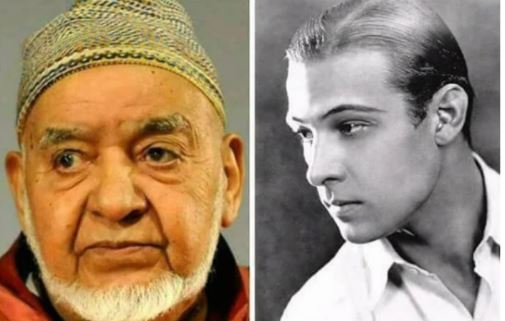
Abdeljabbar Louzir was not a simple actor and comedian, but he was one of the pioneers of Moroccan theater, who was adored by the public who fell under the spell of his Marrakchie comedy.
Abdeljabbar Belouzir was born in 1928 (1932 according to other sources) in the Legza district of the ochre city, in a poor family. He was not able to access education, but he learned how to read and write from activists of the national movement when he was serving his sentence at the Laalou prison in Rabat because of his nationalist statements and his participation in the movements against colonization after the Sultan’s exile. The young Abdeljabbar decided to work as a tradesman to help his father, who was a shoemaker, meet his daily needs. Thus, he had several professions in the leather goods and wood industry. He then fell in love with soccer and entered this world when he was only 15 years old.
He joined the Kawkab Athletic Club of Marrakech in 1948 where he was a goalkeeper in the youth team. However, he was soon charmed by the comedy which took him away from soccer. He discovered his passion for art through “halka”, the most widespread art of the past at the famous Jamaa El Fna square in Marrakech. His plays were a great success there, especially those he performed with his close friend the late Si Mohammed Belkass. They played together the first pieces of the ” Al-Atlas ” troupe. It was a theatrical play entitled “El Fatmi et Daouia”, which was performed in front of the late Sultan Mohammed V at Bahia Castle. This success will follow Abdeljabbar along his career, with the troupe “Amal” and “Al Wafaa Al Marrakchia” with whom he traveled and performed all over the world.
Having spent 60 years of his life dedicated to art and making his audience laugh, Abdeljabbar Louzir passed away, leaving behind him a huge legacy of love, respect, many special artistic projects and theater plays such as “Ana Mzawag f Allah”, “Zawaj Bila Idn”, “Fadila w Chitan”, “Chleh w l’essass”, “Sidi Kaddour El Alami”, “Wlidat Jamaa El Fna”, “Hbel Terbah”, “Dar Lekbira”, “El Harraz”, “El Guerrab”, and films such as “Hallaq Derb El Fouqara”, “Abdou Chez les Almohades”, “I’qab” and “Ouled Mou”.

Be the first to comment